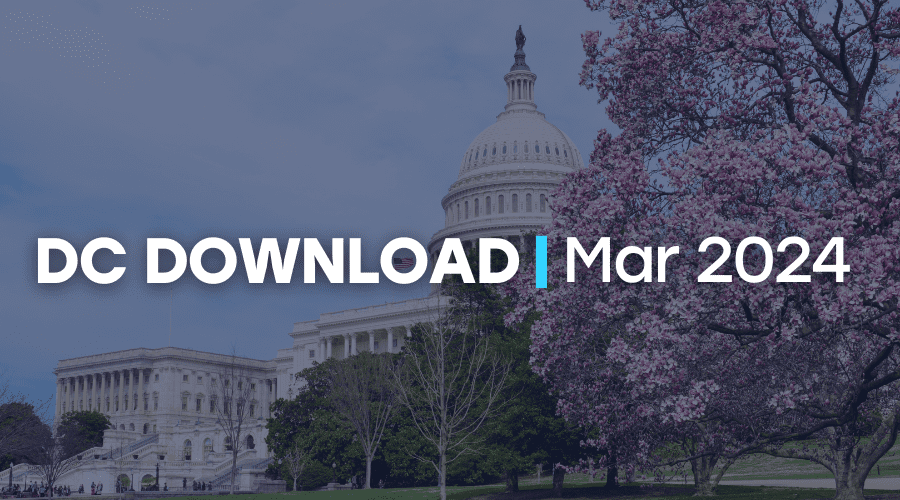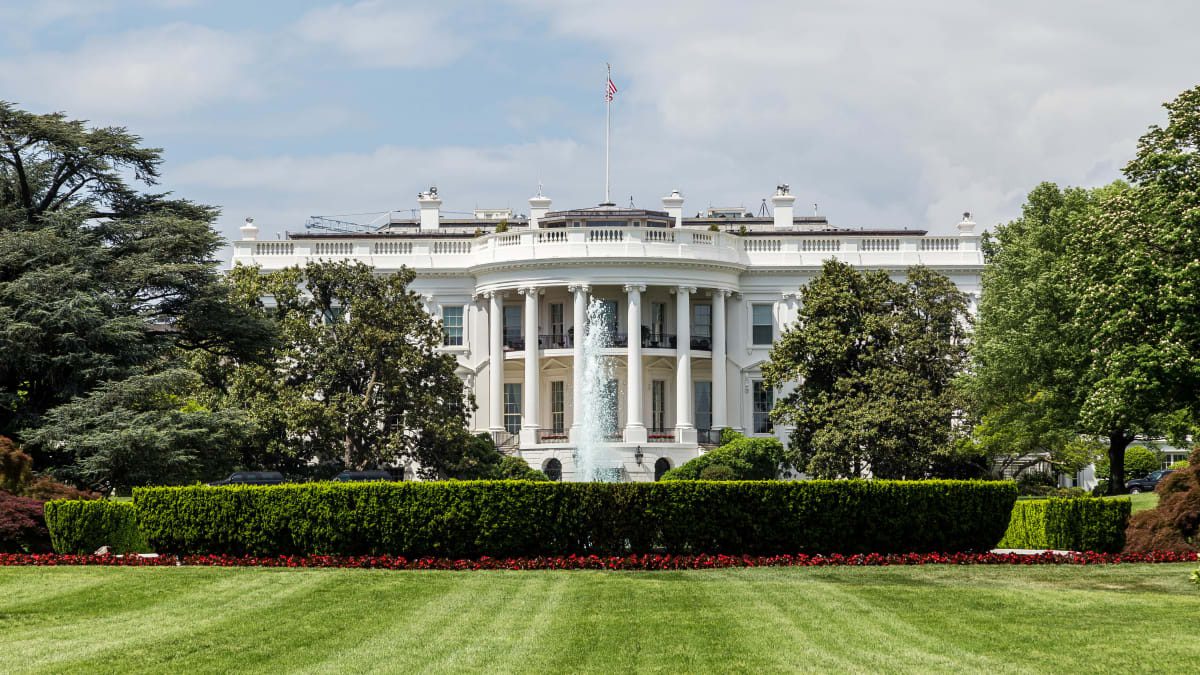It’s March Madness! And in addition to all the action in Washington, D.C., I hear that there are a couple of basketball tournaments, too. If you’ve missed any of this policy madness, here is your monthly recap of the top highlights for our sector and the people we serve.
Congress Completes Funding Process for Current Year
During the early morning of Saturday, March 23, President Joe Biden signed the “Further Consolidated Appropriations Act, 2024” into law, ending a lengthy and tumultuous annual funding process nearly six months late. Despite the bumpy road it traveled, this legislation cleared Congress with broad bipartisan support, passing by a vote of 74-24 in the Senate and 286-134 in the House of Representatives. The $1.2 trillion package covered roughly 70 percent of federal agency spending, including the annual Defense, Financial Services, Homeland Security, Labor-Health and Human Services-Education, Legislative Branch, and State-Foreign Operations bills. Democrats touted major investments in child care, health, and education, while noting that the package rejected proposals to restrict abortion and immigration. Republican negotiators highlighted investments in national security, military pay and benefits, and border security. This package followed passage of six smaller appropriations bills on March 8.
Legislators then largely left town for a two-week recess, but may return to the sharp infighting among House Republicans that has slowed both chambers this year. Conservative members were “furious” with Speaker Mike Johnson (R-LA) over his support for government funding legislation. And he could soon face a “motion to vacate” vote like the one that ended Representative Kevin McCarthy’s (R-CA) Speaker tenure.
President Biden Releases Fiscal Year 2025 Budget Proposal
President Biden released his Fiscal Year 2025 budget proposal and additional details on Monday, March 11. As he did during the State of the Union a few days earlier, President Biden called for lowering prescription drug costs, expanding child care, building affordable housing, investing in education, and protecting major federal health programs. In keeping with previous budget proposals, the FY25 request calls for reducing the deficit by increasing taxes on corporations and high-income households, while restoring the expanded child tax credit. Other proposals that may be of interest to the charitable sector include paid family and medical leave, expanding the American Climate Corps, universal preschool, and major investments in tribal communities and Historically Black Colleges and Universities (HBCUs).
Unfortunately, President Biden’s budget proposal neglected to include one critical nonprofit sector priority: a meager $4 million to provide wage and employment data about the nonprofit workforce. As Independent Sector President and CEO Dr. Akilah Watkins noted, “policymakers continue to have a blind spot when it comes to the needs of the economy’s third largest employer. This data inequity needs to end.”
While the ambition of President Biden’s request is clear, its path forward is much murkier. The FY25 funding process will now shift back to Capitol Hill, where legislators historically hew toward their own priorities and lack the support to pass sweeping overhauls and tax increases. The process in the House of Representatives faces additional hurdles with Appropriations Committee Chairwoman Kay Granger (R-TX) announcing her intention to step down from her post.
Temporary Business Tax Extensions and Child Tax Credit Expansion
Questions regarding potential Senate consideration of the Tax Relief for American Families and Workers Act (H.R. 7024) — which passed the House by a bipartisan 357-70 vote January 31 — will remain unanswered at least until Congress returns the week of April 8. Senate Finance Committee Republicans have had a litany of complaints about the bill since it was rolled out in mid-January, and Committee Democrats and Republicans have traded offers to modify various provisions while continuing to clash publicly.
The bill includes provisions temporarily reversing business tax increases included in the 2017 Tax Cuts and Jobs Act, an expansion of the refundability of the Child Tax Credit (CTC), the United States-Taiwan Expedited Double-Tax Relief Act, disaster relief, and low-income housing provisions. The cost of the package is offset by imposing an early cut off deadline to file claims for the Employee Retention Credit on January 31, 2024, as well as other anti-fraud provisions.
When Congress returns, the approaching end of the individual tax filing season on April 15 may be a symbolic deadline for action as legislators increasingly turn their eye toward campaign season. However, the IRS insists that it will be able to process CTC changes for any 2023 tax returns that are filed before Congress takes action.
DAF Research Released
In late February, the Donor Advised Fund (DAF) Research Collaborative released a national study analyzing data from more than 50,000 accounts spanning 111 DAF programs. The study includes key findings that half of all DAF accounts had total assets of less than $50,000 at the end of 2021, while only 7% had balances of $1 million or more.
Smithsonian Latino Lawsuit
In late February, the American Alliance for Equal Rights (AAER) filed a lawsuit challenging a museum internship directed at Latino college students. AAER — which has lodged multiple legal complaints against diversity, equity, and inclusion initiatives — alleges that the internship program amounts to an “illegal quota” and that it unfairly discriminates against non-Latinos.
This lawsuit follows (and cites) a successful challenge to decades of higher education affirmative action policies decided by the Supreme Court in June 2023. While the ramifications of that decision are clearly still playing out, Independent Sector and Council on Foundations commissioned a memorandum analyzing its potential impact on the charitable sector. AAER has also brought a lawsuit against the Atlanta-based Fearless Foundation, an organization led by Black women that helps combat underfunding in venture capital. Independent Sector and Council on Foundations have filed a joint amicus brief in support of Fearless Foundation.

